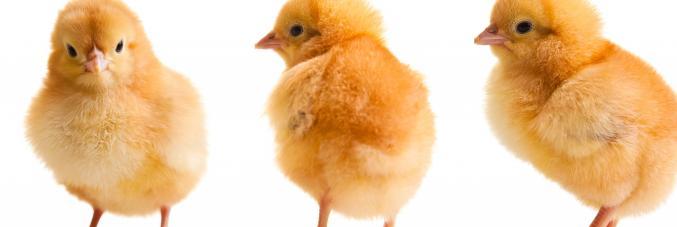
Chicks: dominant individuals are less intelligent than intermediate and subordinate individuals
17.12.2021
A research group led by Lucia Regolin of the Department of General Psychology of the University of Padua demonstrates the relationship between social ranking and abstract logical abilities. Stating that, contrary to popular belief, dominant individuals are less intelligent than intermediate and subordinate ones. Findings from the study are published in the journal, Communications Biology under the title Low-rank Gallus gallus domesticus chicks are better at transitive inference reasoning .
The experiment took male and female chicks, training them to learn a sequence of relationships between pairs made up of two elements taken from five different objects (AB, BC, CD and DE). Chicks were food reinforced if they pecked at the correct stimulus of the presented pairs. Choosing one of two objects within the new pair “AE” (first and last object) and within the new pair “BD” (intermediate). In both cases of the experiment, couples encountered objects that had never experienced together before.
Results of the experiment explained in the ability to make transitive inferences (stating that if "A wins over B" and "B wins over C", hence A should win over C). This is crucial for predicting the position of others and their own in the social hierarchy, thus avoiding a direct clash with members of the group. According to the study, the ability to infer judgement of an unobservable relationship can be based on observed relationship. This ability would be crucial for individuals in lower ranked positions, as the must protect themselves against unsuccessful comparisons. At the same time, this ability is irrelevant to dominant individuals as they lack interest in hierarchies between lower ranks.



